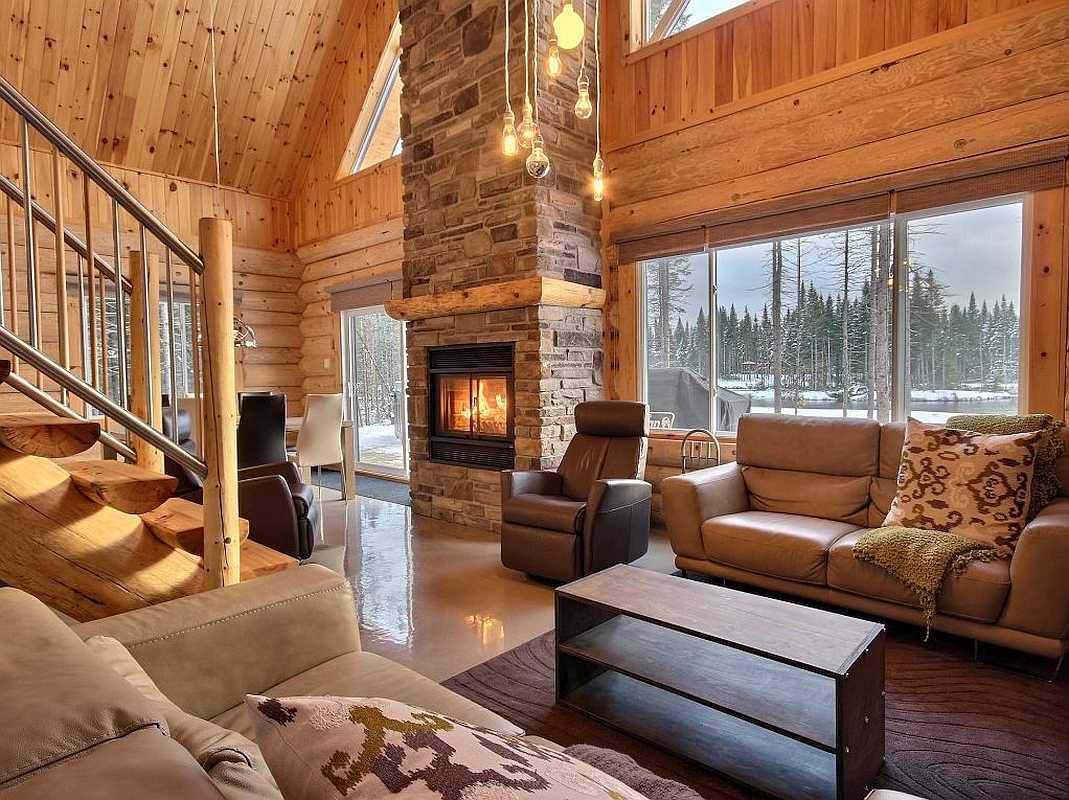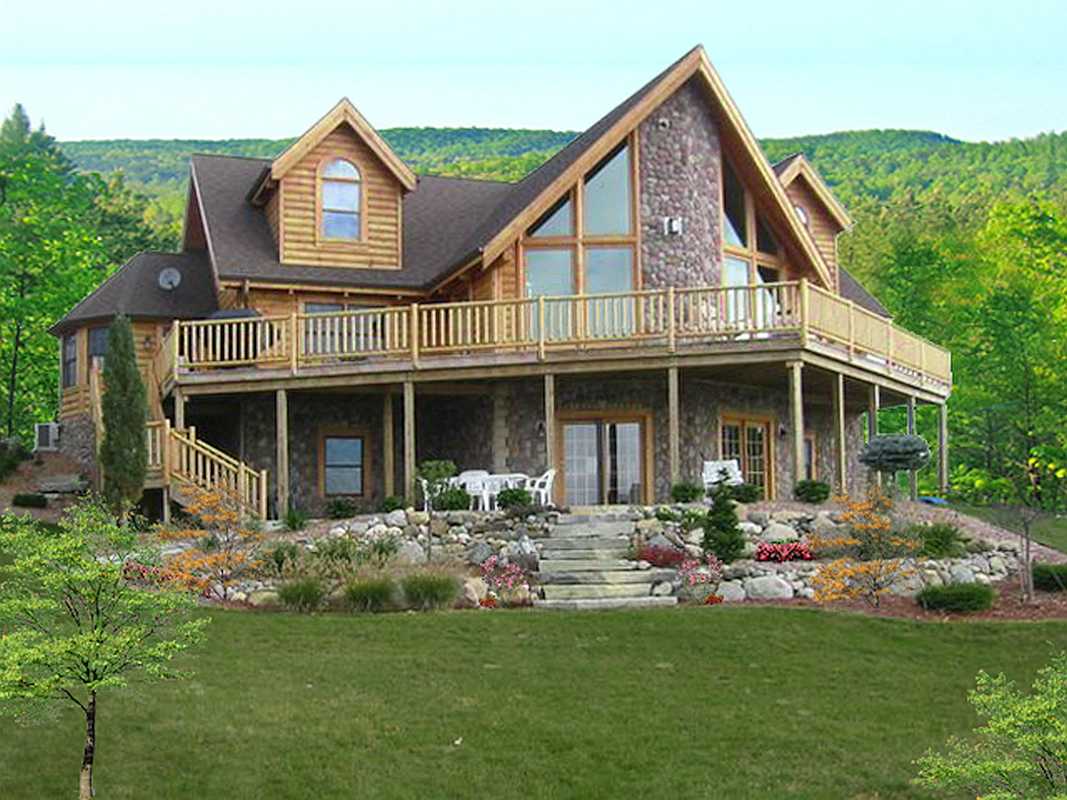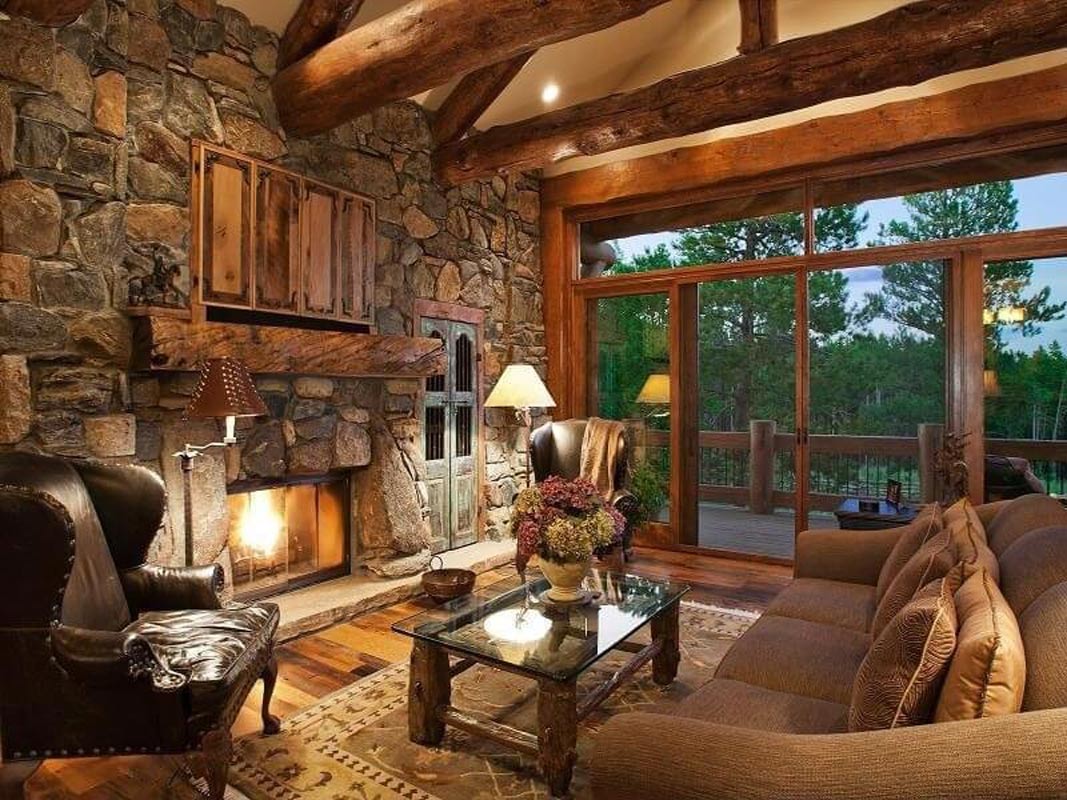If you’ve decided to join the growing ranks of log cabin homeowners, deciding where to build a log home is one of the most important decisions you’ll make. Maybe you love fresh mountain air, but your spouse has always dreamed of living near the beach. How do you decide?
Mountain living and coastal living share some advantages. Stunning views. Fresh air. The soothing sounds of rustling trees or lapping waves. Both environments are excellent for reducing stress and promoting health and well-being. So, it really comes down to the details.
Whether you’re looking for a spot where you can put down roots after retirement or the perfect location for cabin getaways, we’ve compiled some helpful tips to help you decide between a home in the mountains or near the coast.
Mountain Living

There are lots of benefits to living in the mountains. Land is typically abundant and affordable. You may be able to buy considerable acreage—even a ranch—for as little as a few thousand dollars an acre. If your goal is to homestead, this is ideal.
Having lots of land ensures maximum privacy and a secluded lifestyle away from the hustle and bustle of the city. Mountain living also gives you access to an abundance of outdoor activities, from hiking and mountain biking to skiing, hunting, and boating. And you may be close to state parks and national parks.
Some of the drawbacks of living in the mountains may include distance to amenities like grocery stores, entertainment, and healthcare facilities. Extreme weather can be an issue at higher elevations, and rugged terrain or seasonal road closures can restrict mobility, especially in remote mountain communities.
Depending on your needs and goals, these may or may not be issues. Conditions that some people consider problematic (like isolation) are desirable to others.
Coastal Living
Living near the beach is a dream for many people. In most coastal locations throughout the US, you’ll enjoy temperate weather year-round. That means your favorite outdoor activities are never off limits.
While mountain dwellers may be stuck indoors for much of the winter, living near the ocean means you can enjoy water sports like surfing, fishing, or simply relaxing on the beach whenever you want—even in the winter.
Exposure to blue spaces like an ocean, lake, or even a swimming pond has been linked to overall improved health. Even short walks along the beach can boost your mood and mental health. Coastal properties also have excellent resale value, providing potential financial benefits in the future.
Living near the coast has some drawbacks, including the possibility of heavy traffic from tourism during peak seasons. This can impact your daily routines and commute. If you live very close to the beach or near a tourist hotspot, you may not have as much privacy as you’d like during the high season.
And depending on where you live, you may face increased risks from natural disasters like hurricanes, tsunamis, or coastal flooding. But every location has its own set of risks.
If the advantages of living near the water outweigh any drawbacks or inconveniences, coastal living might be for you!
Additional Factors to Consider
Beyond weather and recreational opportunities, there are other things to consider when deciding where to build your home.
Do you plan to live in your home full or part time? If you’re building a home to live in year-round, access to amenities like grocery stores, restaurants, and entertainment venues might be especially important. If you’re building a vacation cabin, living in a more remote location may not be as much of an issue since you can load up on supplies on the way to your cabin.
Do you need to be close to the city for work? Even if you work remotely, you may need to go into the office a couple days a week or every month for important meetings. In this case, choosing a location within a one- or two-hour drive of the office makes sense.
Do you have kids in school? If so, you’ll want to choose an area with quality schools nearby, unless your kids are homeschooled. Will you drive your child to school, or will they take a school bus? Do school buses come to your desired neighborhood?
Are properties affordable in your desired location? Maybe you have your heart on living near the coast, but the cost of land is outside your budget. Research different locations and consider looking inland. If you’re willing to live a few miles from the beach, you may still be able to find affordable land with ocean views.
Will this location meet your future needs? Thinking about your needs in the near and distant future will help you decide on the best location. Do you plan on retiring in place? If you plan to start a family, does the area have good schools and childcare? Will you be able to afford a home big enough to support a growing family?
As with any major move, doing some research about what to expect in different locations and environments can help you make the best decision for you and your family.
Build Your Dream Log Cabin with eLoghomes

Deciding where to build your home is just the first step in your home-building journey. Once you’ve chosen a location and secured land for your home, it’s time to decide how you’ll build your home.
eLoghomes makes home building easier, with log cabin kits that have already been expertly designed and engineered. With our log home packages, you don’t need to hire an architect. That means your builder or general contractor can get to work on construction even faster!
Our homes are fully customizable with a variety of upgrades, and we offer optional construction services for your eLoghomes shell package.
Learn more about our process and see testimonials from our satisfied customers, then browse our model gallery to find your perfect log home floor plan.

